Perihelion Summer Read online
Page 2
Matt said, “Did Yuki not tell you?”
“Tell me what?”
“About the quota.”
“No.”
Matt looked past him into the cabin; it was in darkness, except for a glowing iPad lying on one of the bunks, a frozen image filling the screen. “Okay. Well, it’s a lot less than you’re probably used to. And you just exhausted it.”
“Oh.” Aaron managed an embarrassed smile. “Sorry. It was the season finale of Lilliput . . .” He stopped, perhaps intuiting that, at sea, there was no extenuating clause that involved season finales. “I’ll pay for whatever it cost you.”
Matt said, “Forget about the money. You need to start thinking about where the fuck you are.”
“No one told me!” Aaron protested.
“Do you see any towers on the horizon? Could you really not have guessed that that would make a difference? Or even wondered, and asked?”
“Yuki was asleep.”
“You couldn’t wait until tomorrow?”
Aaron had no reply. Matt turned and walked away.
Back in his cabin, he tried to calm himself, willing the self-righteous adrenaline out of his veins. It would be a tiny thing to fix: at first light, he’d take one of the runabouts, and once he was in range of a tower he’d be able to top up the contract in a matter of minutes. Aaron had been on board less than a day; he had no experience with the environment, and he wasn’t a mind reader. Making a big thing out of one small error of judgment would be unfair.
Matt lay down on his bunk and closed his eyes, but sleep remained elusive. He’d thought he’d been prepared for any number of last-minute passengers—and there was no doubt that the Mandjet could meet the material needs of at least two dozen in comfort, and four times as many at a stretch. On the rigs, he’d often slept in rooms with eight people, of four or five nationalities, and they’d usually managed to keep their disputes from escalating. He hadn’t seen so much as a fistfight in all of his time offshore.
But then, his fellow workers had been trained and vetted, and they’d all had far too much to lose to let any petty irritations get under their skin. And every six weeks, they could leave the sardine cans on stilts and go let off steam however they liked.
He wasn’t prepared. There was no rehearsing any of this. All he could do was keep hoping that the Mandjet’s extra cabins would prove superfluous, and a few hours without the internet would mark the height of their tribulations.
4
Matt finished filling the bucket with maggots, then skimmed one more shovelful of the squirming white mass from the top of the compost and delivered it into the hopper leading to the maturation chamber. Then he made his way carefully across the swaying deck and tossed the contents of the bucket into the encircled water.
As always, the meal sank without a trace. It would have been nice if the recipients could bother staging some kind of feeding frenzy, setting the water roiling in a show of appreciation just to convince him that he wasn’t wasting his time. But Matt had never seen a single uneaten larva among the fish feces and other crud that the recycling system pumped up from the depths of the pond.
He stood for a moment savoring the breeze, then noticed a faint tickling sensation; he glanced down to find a couple of stragglers clinging to his chest, and flicked them off over the rail. As he’d shoveled the maggots, their stench seemed to have permeated his skin, more from proximity than actual contact, until even his own sweat stank of fish oil. There was no stage in any insect’s life cycle when it was entitled to smell more piscine than an actual fish—and while the flies’ CRISPR’d genes and algal supplements added all the right oils needed to provide the cobia with a balanced diet, every human Matt had ever met found that the incongruous odor made the wriggling larvae even more disgusting than their unaltered cousins.
As he turned away from the rail, he saw Yuki approaching. She stopped suddenly, and Matt wondered why, then he realized that he was scowling.
“What’s up?” he asked cheerfully.
“There’s been another lensing,” she said. She did not sound happy, but she offered no more details.
Matt nodded. “I’ll be there in a minute.”
He went to the saltwater shower by the fly hut and stood under the flow, until the odor of maggots and compost was either gone, or overpowered by the water’s notes of brine and algae. He shook himself half-dry, and then the walk back to his cabin in the morning sun baked most of the remaining droplets from his skin, so he barely needed to use a towel.
When he arrived in the control room Jožka was seated at the console, with the others gathered around her.
“So what’s the news?” he asked.
Jožka said, “The ring’s nowhere near big enough. It’s very confusing.”
“You mean the arcs are too small?” Matt nudged Arun; he was a head taller than Matt, and he let him squeeze closer to the console to grant them both an unimpeded view. The image, taken at Cerro Armazones, showed the starlight that had passed close to the black hole spread into two arcs that were each barely more than quarter-circles. The hole needed to cross right in front of the star to yield the full circle of an Einstein ring; if it was off-target only parts of the circle appeared. But the astronomers knew how to extract results when the alignment was far less perfect than this; they didn’t need an unbroken ring.
“I mean the radius hasn’t increased the way it should have,” Jožka clarified, pointing to the scale at the bottom of the image.
“Oh.” Matt hadn’t actually memorized how many arc-seconds’ wide the last Einstein ring had been, but someone had helpfully added a mark to the scale that showed it for comparison. The ring had only grown by about 60 percent in the fifteen months since the previous lensing. “That’s not confusing,” he said. “It’s impossible.” The square of the radius was supposed to be proportional to the black hole’s mass divided by its distance. If the trajectory computed from the first two sightings was even remotely correct, the size of the ring should have more than doubled.
“They’ve thrown the engines into reverse,” Aaron joked. “They don’t like what they’ve seen, and now they’re plotting a course for home.”
Yuki said, “If only.”
Arun slapped his palms together in a sudden epiphany. “It’s a second black hole!” he declared. “The one we saw in the first two lensings must have a lighter companion!”
Jožka snorted. “More likely someone hacked the telescope’s software.”
“No, Taraxippus is a binary,” Arun insisted. “Nothing else makes sense.”
“So how did these two black holes hook up?” Jožka challenged him. “The heavier one can’t be more than a tenth the sun’s mass, or we would have seen bigger shifts in the outer planets by now. Black holes that small can’t form from stars. So what are the odds of two of them being squeezed into existence side by side in the Big Bang?”
“I’m not a cosmologist,” Arun protested. “But apart from putting limits on the total population, I’ve never heard anyone seriously claiming to have pinned down anything about primordial black holes. Maybe they weren’t just spread out at random. If they were born in clusters, it wouldn’t be that strange if a lot of them ended up in pairs.”
Matt was still too bewildered to take sides, but if these were the only choices, he knew which one he’d prefer. The idea that anyone would mess with the observatory’s software was disturbing, but if Taraxippus was replaced by a pair of Taraxippoi, all the past predictions based on a solo interloper would be rendered void, and all the new ones would be plagued by much greater uncertainty. Better to have some clown in an fsociety mask show up in a clip on the telescope’s hard drive, boasting that they did it for the lulz, and offering to unlock the real data in exchange for ten of their least favorite world leaders wrestling each other in pig manure in the middle of Times Square.
The console chimed: another link had come through. Apparently the Hubble had received a tip-off from Chile when the lensing began, and n
ow its own independent sighting had been analyzed. The ring really was smaller than it had any right to be. What’s more, comparing the two views of the event from slightly different perspectives put bounds on the distance to whatever it was that had bent the starlight this time—placing it a little closer than the point Taraxippus would have reached if the old calculations had been reliable. Nothing had slowed down or retreated, and the black hole responsible for the first two lensings could not have magically shed mass.
Jožka turned to Arun. “Okay, I give up. It’s a binary.”
Matt said, “JPL will run new models. I bet there’ll be something in an hour or two.”
Aaron was mystified. “It’ll take their computers an hour?”
“No, but they’re not going to put anything onto the web without a few humans checking that it makes sense.” Matt had been a student when the first tiny discrepancies began appearing in the orbits of Saturn and Uranus, and a paper rushed out by a prestigious journal had claimed the results as evidence for a long-hypothesized trans-Neptunian planet. But while other groups had failed to reach the same conclusion, it had taken a year for the authors of the original paper to identify the error in their own analysis and admit that something else entirely was frightening the horses.
Aaron tapped on his phone, then showed the result to Yuki. “New Scientist is reporting that the two black holes could be linked by a quantum wormhole!” he announced.
Jožka was unimpressed. “And . . . ?” Matt was fairly sure that whatever Alice and Bob might learn by dropping entangled qubits into a pair of black holes, current technology offered no more chance of making the thought experiment real than it did of grabbing both holes and tossing them back into the void.
Aaron shrugged and slid his thumb over the screen. “The Guardian says we missed the second black hole because the failure to decolonize astronomy left us with a dearth of observatories for the southern skies. But The Australian blames ‘climate-change alarmists’ for browbeating academics into cultish conformity that kept them from questioning the status quo. And The Daily Mail . . . oh, that’s the same as The Australian, word for word, but they’ve put their own byline on it.”
Matt gritted his teeth. “Is it too much to wait an hour for some facts?”
But Aaron was still intent on his feed. “Some dude on Reddit’s running a poll on a name for the new black hole; it’s got about ten K votes already.”
Matt left and went to the mess. It was only half past ten, but he’d had breakfast at five. He made a salad of carrots and lettuce from the garden, then microwaved a potato. He opened the freezer and stared at the rows of dead-eyed fish, then closed it again. It wasn’t just that he was sick of the taste; it was being so intimate with the cobias’ own writhing breakfast.
Arun walked in just as Matt was sitting down to eat, and grimaced at the bland meal. “You really need to raid my stash,” he said.
“I don’t want to start relying on it. Isn’t that what you said yourself?”
“I changed my mind. What’s the point of having it, if we don’t use it?” Arun fetched a small jar of some aromatic condiment and spooned a dollop onto the potato. Matt tried the result.
“Okay, now I’m an addict.”
Arun sat down and ran a hand worriedly over his beard. “This is going to widen all the error bars, isn’t it? While turning all the bad things bimodal.”
“Yeah.”
“Just when I was getting used to the old odds. There was just enough chance of things going badly that I didn’t feel foolish being out here, but not enough to really lose sleep over it.”
Matt said, “I always lost sleep.”
“Really?” Arun was surprised. “At one in five hundred?”
“I don’t think I ever took that at face value,” Matt admitted. “I could follow all the modeling, and check the calculations . . . but how do you know there isn’t something else you’re missing?” In his own field, plucking failure rates out of a theoretical model without adding a hefty margin of pessimism would send you straight to hell, but if orbital mechanics was infinitely more pristine than anything involving fractures or corrosion, apparently it could still come up with a surprise or two. Especially when the bodies in question were invisible most of the time.
Matt was cleaning up when he heard Arun’s phone beep.
“JPL have spoken,” Arun said.
“So let’s go take a look.”
When they reached the control room, Jožka had brought up a map of the solar system, over which was superimposed a kind of landscape of probabilities for the points where either black hole might cross the plane of the ecliptic. Matt had been expecting two reasonably sharp, distinct peaks, but the uncertainties were now so great that there was just a huge elliptical mound that stretched all the way from Saturn’s orbit to Venus’s. The segment of Earth’s orbit that it would occupy during the window for the crossing lay entirely within the mound.
“They really didn’t need to draw a diagram,” Yuki decided. “Eight words would have covered it.”
Arun took the bait. “Eight words?”
“We might be fine. We might be fucked.”
Aaron laughed nervously. “So if we’re Noah’s Ark now, where are the giraffes?”
Matt said, “By the time of the crossing there’ll be thousands of arks at sea. With this news, maybe tens of thousands. There are people who were planning to take seed banks, and DNA collections, and even frozen animal embryos. So relax, Shem, it’s not all down to us.” He felt calm as he spoke the words, as if this earnest collective effort really would offer anyone the least bit of comfort if the tides rose up and drowned the coastlines.
“Seriously, though . . . what if my parents . . . ?” Aaron’s voice faltered.
“We can phone them,” Yuki said quietly. “They can join us, if that’s what they decide.”
Matt looked away, trying to respect their privacy, but he understood what it would be like to struggle with the implications of the offer. Of course Aaron wanted his family to be safe—but to truly believe that the only safe place for them was a berth at sea, he’d also have to believe that millions of other people might die.
5
“There’s not that much looting,” Selena declared. “And the shops have only run out of a couple of things. Long-life milk has gone entirely black market. I mean, really? I would have thought coffee, or toilet paper.”
“Why do you keep downplaying it?” Matt replied, shifting his phone to his left hand so he could wipe the sweat from his right palm.
“I’m not!” she insisted. “People have had a couple of years to stockpile whatever they wanted, even if they thought the chance of anything happening was minuscule. The only ones who haven’t done that are temperamentally incapable of entertaining the possibility of disaster, and nothing they’ve heard in the last few days is going to change their minds.”
Matt had seen images of traffic jams visible from space, where cities whose residents had some memory of flooding—and the means to act on it—had headed inland en masse. But Perth was not New Orleans, and apparently even the beachside suburbs were only half empty.
“If you don’t want to come out to the Mandjet, at least get away from the coast. Take Mum and Dad on a road trip somewhere. I’m pretty sure they’ve never seen Uluru.”
Selena hesitated. “All right. I’ll talk to them.”
Matt said, “If a tidal bulge comes sweeping in . . .”
“I know,” she replied. “But they’re more worried about people looting the house, or not being around to protect things from the water if there’s a smaller flood.”
“Tell them you’ll buy them new carpets, if it comes to that.”
“I’ll find a way to convince them,” she promised.
Matt wanted to insist that she go alone if her powers of persuasion failed her, but he knew he’d be wasting his breath. If their parents stayed, she would stay and look after them. It was what he would have done himself, if she hadn’t been
there.
“Call me when you’ve talked to them,” he said.
“All right.”
Matt left his cabin and walked out onto the deck, hoping to catch the afternoon breeze. Up ahead, Aaron was standing by the rail, holding his phone by his side.
Matt approached him. “Any luck?”
“No.” Aaron’s face flushed with embarrassment. “They think a passing black hole is more likely to suck a boat into the sky, than a house with good foundations.”
Matt said, “Tell them that if anything flies into the sky, it will mean one of the holes has come close enough to strip away half the atmosphere, then toss the Earth out past the orbit of Pluto. Hiding in the storm cellar with Aunt Em won’t save them.”
“Are you sure we’re not more vulnerable at sea, though?” Aaron asked. “If a mountain of water appears on the horizon—”
Matt cut him off. “If a mountain of water appears, it will be as wide as the Indian Ocean, so out here we won’t even notice the slope. The danger comes when water’s forced to move through narrow gaps, or over a shallow sea floor. So the best place to be if things go tidal is in deep water that will stay deep, or on dry land far enough from the coast to stay dry.”
“I tried to persuade them to go out into the desert,” Aaron replied. “But they said they’re not moving unless the government tells them to.”
“That’s never going to happen,” Matt predicted. “If they made it the official line, and people acted on it, every inland town would have its population quadrupled. No one’s going to die from sleeping outdoors in this weather, but what happens with food, water, sanitation?”
Aaron groped for a solution. “There must be army engineers . . . ?”
“Yeah, and I’m sure they could cope with a few thousand civilians, in one or two locations. They could truck in water and dig latrines. But if every coastal city was evacuated, it would be a public health disaster. If the government had prepared for the worst from the start, and gambled a few billion dollars on it, they could have been in a position to do something useful. But at this point . . .” Matt trailed off. He had trouble summoning up any real sense of disappointment; it had been clear for a while that the bets were being placed very differently.

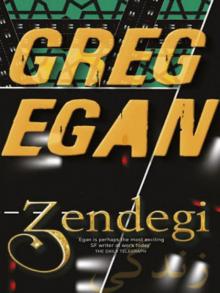 Zendegi
Zendegi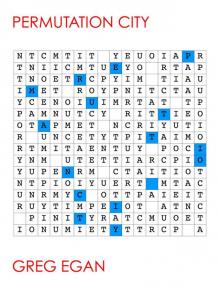 Permutation City
Permutation City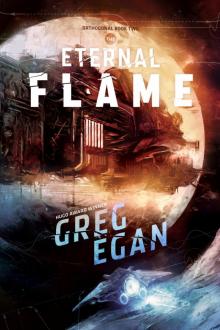 The Eternal Flame
The Eternal Flame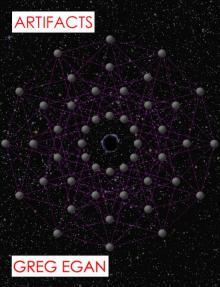 Artifacts
Artifacts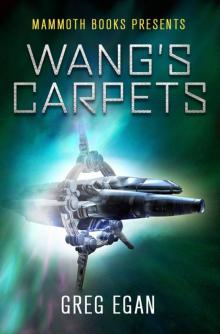 Wang's Carpets
Wang's Carpets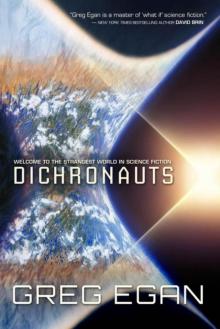 Dichronauts
Dichronauts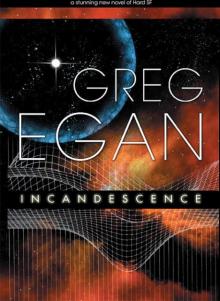 Incandescence
Incandescence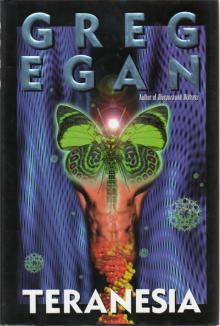 Teranesia
Teranesia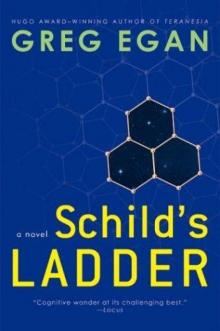 Schild's Ladder
Schild's Ladder Quarantine
Quarantine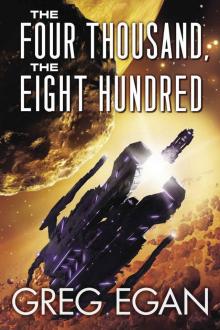 The Four Thousand, the Eight Hundred
The Four Thousand, the Eight Hundred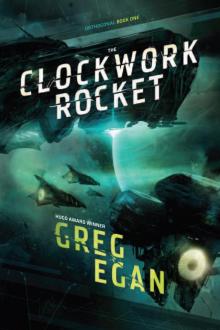 The Clockwork Rocket
The Clockwork Rocket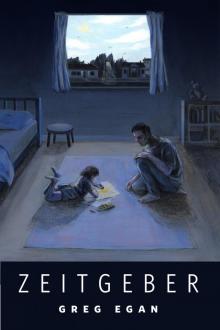 Zeitgeber
Zeitgeber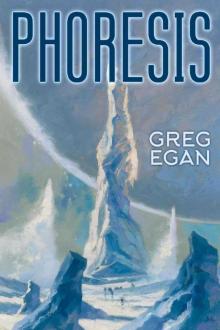 Phoresis
Phoresis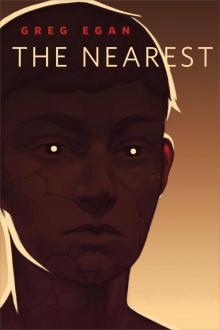 The Nearest
The Nearest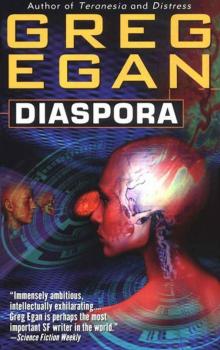 Diaspora
Diaspora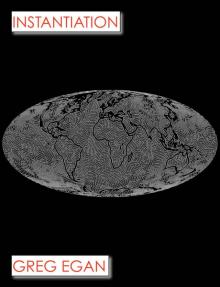 Instantiation
Instantiation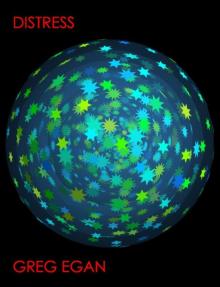 Distress
Distress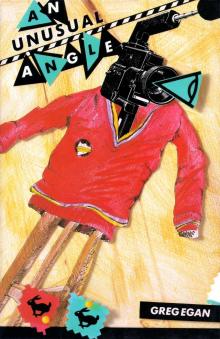 An Unusual Angle
An Unusual Angle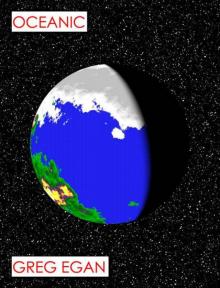 Oceanic
Oceanic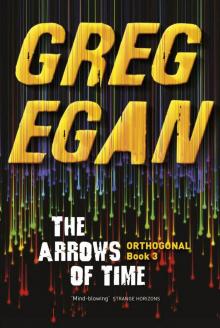 The Arrows of Time
The Arrows of Time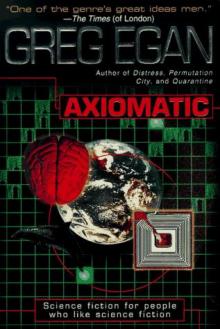 Axiomatic
Axiomatic![Anthology 2. Luminous [1998, 2010] Read online](http://i1.bookreadfree.com/i/03/18/anthology_2_luminous_1998_2010_preview.jpg) Anthology 2. Luminous [1998, 2010]
Anthology 2. Luminous [1998, 2010]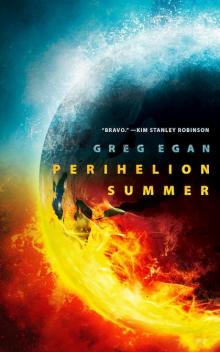 Perihelion Summer
Perihelion Summer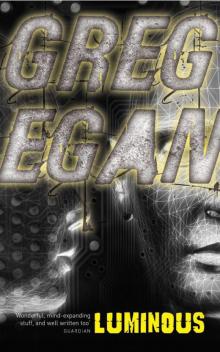 Luminous
Luminous